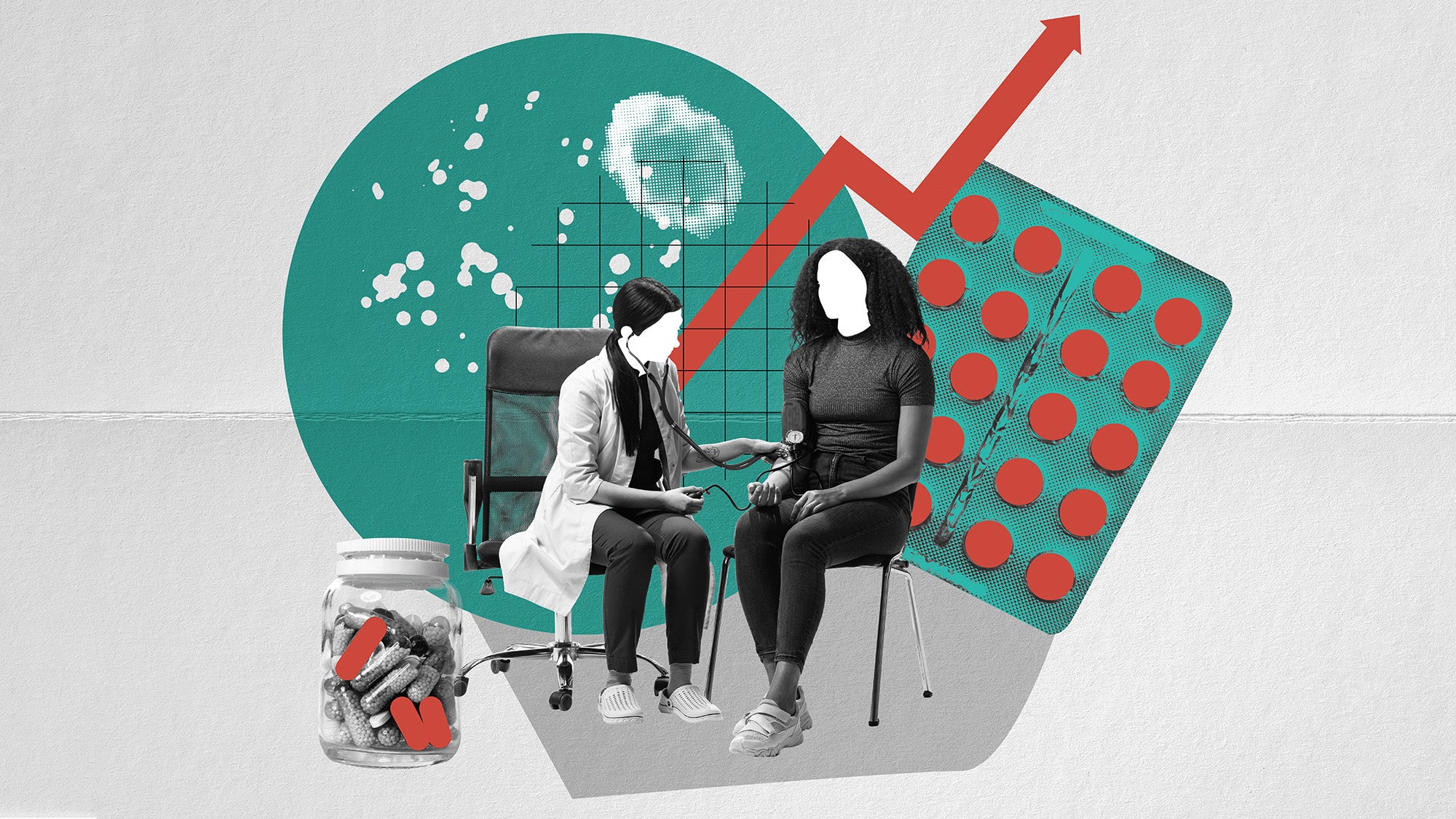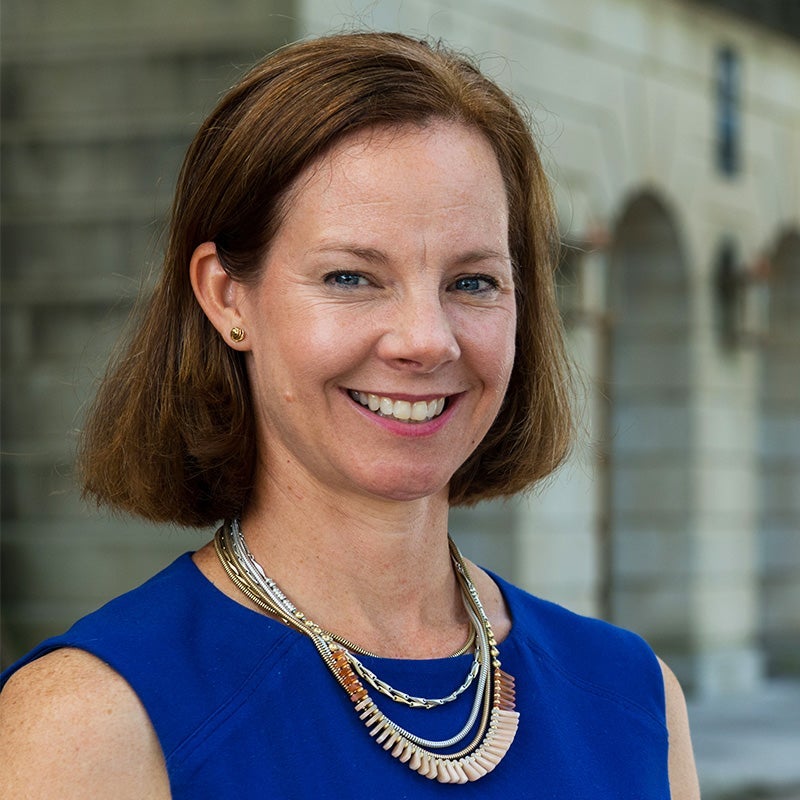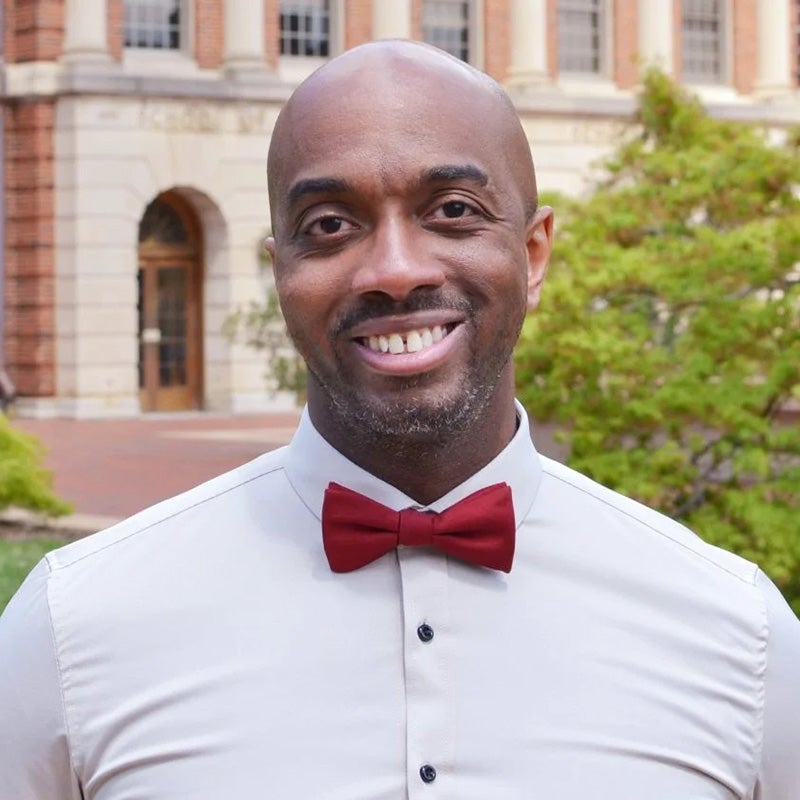DISCOVER Initiative Launched at Georgetown University to Advance Research on Health Disparities

Posted in GUMC Stories
Three leading health concerns in Blacks and Latinos in D.C. to be studied, including cancer, stroke and maternal health.
(August 28, 2024) — An innovative initiative called DISCOVER (Development of Investigators Supporting Community Outreach and Value of Engagement in health disparities Research) launched this month at Georgetown University Medical Center (GUMC) to find solutions for, and advance the understanding of, certain health disparities related to Black and Latino residents in the District of Columbia. These residents generally have shorter life expectancies and higher morbidity and mortality due to cancer, stroke and pregnancy-related problems than non-Hispanic white residents.
“People in our community, nation and world continue to struggle to get access to the care they need,” says Norman J. Beauchamp Jr., MD, MHS, executive vice president at GUMC and executive dean of Georgetown’s medical school. “This grant will make it possible for us to hasten the pace of ensuring healing and health is available to all. It acknowledges the trust and partnership we have established with the community and the expertise and dedication that exists at Georgetown and within our academic health system partner, MedStar Health. Together, all things are possible.”

Funded by the NIH’s National Institute of Minority Health and Health Disparities (NIMHD) for $3.5 million over a five-year period, the award establishes a Center of Excellence in Investigator Development and Community Engagement at Georgetown. Importantly, DISCOVER will be guided by three advisory boards, one of which is a community advisory board that will include key advocates, community leaders and clinicians from the Washington, D.C., area to ensure the areas of research focus align with community values.
“DISCOVER will be a catalyst for early stage investigators at Georgetown to engage with communities experiencing health disparities in D.C. and focus on three vital areas of well-being,” says the grant’s lead principal investigator, Kristi Graves, PhD, professor of oncology, associate director of diversity, equity and inclusion at Lombardi Comprehensive Cancer Center, and associate dean for faculty development at GUMC. “These disparities have been rather intractable, so we are striving to prepare early career investigators to work with community members to find solutions to reduce these health inequities.”

Georgetown received the award, in part, due its many attributes that make it a leader in biomedical and research training related to health disparities:
- Georgetown Lombardi is the only federally designated comprehensive cancer center in Washington, D.C.
- Georgetown’s academic health system partner, MedStar Health, leads the Safe Babies Safe Moms program, a community-partnered citywide clinical, educational and research effort to improve maternal and infant health.
- Georgetown has nationally regarded clinical investigator training programs in stroke treatment and recovery.

“DISCOVER is unique in the way we will approach multifaceted health disparities research training and investigator development,” says principal investigator for community outreach and dissemination Michelle Roett, MD, professor and chair in the Department of Family Medicine and director of the Georgetown Center for Health Equity. “We are well positioned to take advantage of this opportunity due to our pool of about 200 early-stage investigators and research mentors who have expertise in either cancer, stroke or maternal health research to advance health equity.”
“Mentoring is important to this initiative as we want to help train and support the next generation of researchers so that they can engage closely with the communities they serve to address health disparities,” says principal investigator for investigator development Caleb McKinney, PhD, MPS, assistant vice president and associate dean in Biomedical Graduate Education at GUMC and associate professor in the Department of Rehabilitation Medicine. “DISCOVER’s success depends on our ability to create an inclusive culture in which investigators can learn and develop skills to conduct rigorous, productive, interdisciplinary and impactful health disparities research.”
The three areas of research focus in DISCOVER were chosen because:
- Non-Latino Blacks have the highest cancer mortality rates in D.C.; seven of the top 10 cancers in D.C. have higher mortality rates than the national averages.
- At local hospitals in the D.C. area, between 53-72% of stroke patients treated recently were Black in contrast with the D.C. population, 45% of whom are Black.
- Pregnancy-related mortality is strikingly higher in Washington, D.C., than in the United States overall: 44 deaths vs. 28.4 deaths, respectively, per 100,000 live births.
“We very much hope that we can leverage DISCOVER as a model for investigator development in health disparities research that can be disseminated to inform best practices nationwide,” concludes Graves.
